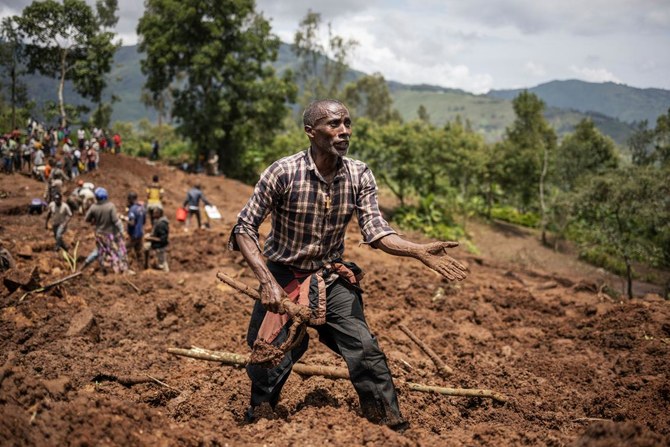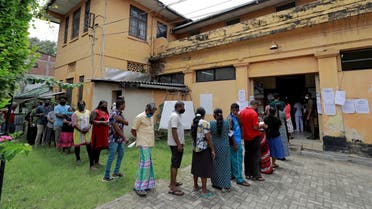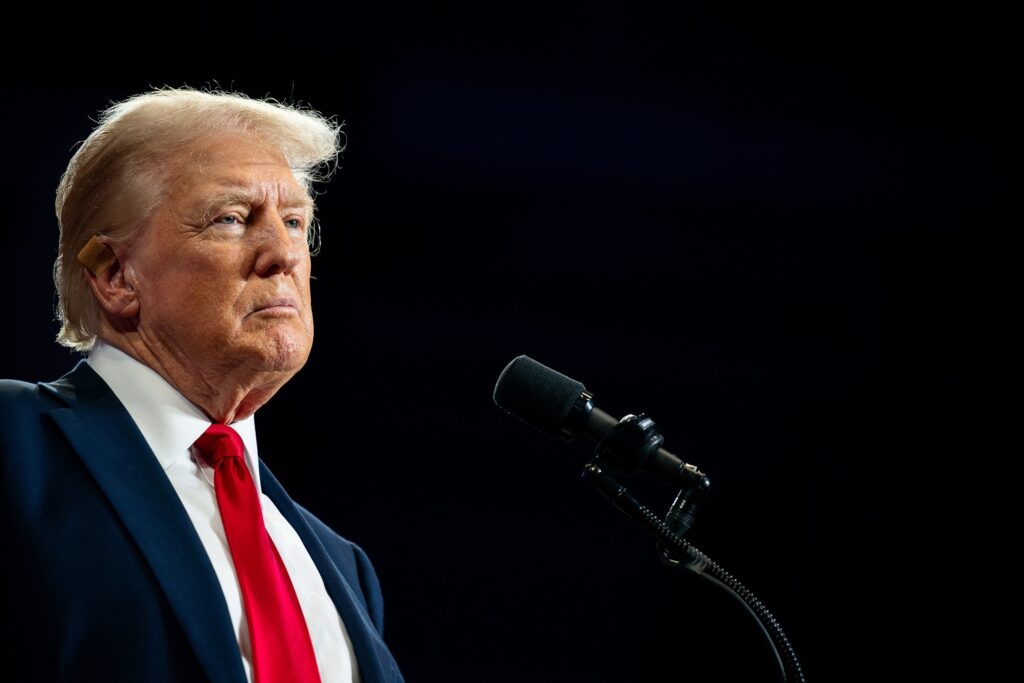F.P. Report
WASHINGTON: Secretary of State Antony Blinken and Secretary of Defense Lloyd Austin hosted Minister for Foreign Affairs and Minister for Women Marise Payne and Minister for Defence Peter Dutton on September 16 in Washington D.C. for the 31st Australia-United States Ministerial Consultations (AUSMIN 2021).
The United States-Australia Alliance remains an anchor of stability, and the principals reaffirmed the Indo-Pacific is the focus of the Alliance. This year as we celebrate our Alliance’s 70th anniversary we proudly reflect on the legacy of peace and prosperity to which our partnership has contributed. In the face of challenges spawned by the COVID-19 pandemic, climate change, and growing threats to security and stability, our friendship stands steadfast and resolute. Our shared values and experiences pave a path forward to meet these challenges, delivering solutions that are grounded in democratic values, promote respect for human rights, and strengthen the rules-based international order.
Indo-Pacific Cooperation
The United States and Australia will continue to advance peace, security, and prosperity to ensure an open, inclusive, and resilient Indo-Pacific region. Our allies and partners are our greatest strategic asset and central to achieving our collective goals in the region. We will pursue closer cooperation in priority areas including regional security, infrastructure, economic growth technology, democratic resilience, human rights, addressing the climate challenge, and pandemic response.
The Secretaries and Ministers reaffirmed their commitment to working through the Quad to support Indo-Pacific partners to respond to the defining challenges of our time. The Quad is already making a difference on COVID-19 vaccine production and delivery through the Quad Vaccine Partnership, and deepening cooperation on other core regional challenges including climate change, critical and emerging technology, maritime security, infrastructure, cyber, and countering disinformation. The United States and Australia are committed to regular Quad engagement at all levels, including the second Leaders’ Summit scheduled for September 24. Recognizing the importance of the Quad and closeness of our bilateral relationship, the counterparts welcomed confirmation the Governments of the United States and Australia would fund Fulbright scholarships that will focus on our shared interest in the security and prosperity of the region.
The Secretaries and Ministers are firmly committed to Southeast Asia, ASEAN centrality, and ASEAN-led architecture. They underscored the role of the East Asia Summit as the region’s premier, leaders-led forum for addressing strategic challenges and expressed their ongoing support for the practical implementation of the ASEAN Outlook on the Indo-Pacific. The principals commend Brunei, as ASEAN Chair, for its leadership and reaffirm their support for ASEAN-led initiatives on COVID-19 response and recovery including the ASEAN Comprehensive Recovery Framework and the ASEAN COVID-19 Response Fund.
We recognize the importance of the Mekong sub-region and share the view that strengthening Mekong sub-region countries’ resilience, economic prosperity, clean energy systems, health security, and good governance benefits all. The Secretaries and Ministers confirmed support for the Mekong Safeguards Program, noting new Australian funding through the Mekong-Australia Partnership and continued support from the Mekong-U.S. Partnership. This program will foster strong and consistent environmental, social, and governance safeguards in new energy and transportation infrastructure projects.
The Secretaries and Ministers remain gravely concerned about the situation in Myanmar. The principals called for a swift return to democracy, inclusive dialogue between all parties, and immediate, unimpeded humanitarian access. They urged a cessation of violence and the release of political prisoners and those arbitrarily detained, including Australian Professor Sean Turnell and U.S. journalist Danny Fenster. Both sides expressed support for the mandate of the Special Envoy of the ASEAN Chair on Myanmar and encouraged ASEAN to hold Myanmar accountable to the Five-Point Consensus.
The Secretaries and Ministers upheld that adherence to international law is essential for regional and international stability and prosperity. They underlined the importance of countries’ ability to exercise their maritime rights and freedoms in the South China Sea, consistent with the UN Convention on the Law of the Sea (UNCLOS), including freedom of navigation and overflight and other internationally lawful uses of the sea related to these freedoms. The principals expressed their intention to strengthen cooperation and conduct maritime exercises with a wide range of partners. They also resolved to work with partners to respond to “gray zone” activities. The Secretaries and Ministers conveyed ongoing concern regarding the People’s Republic of China’s (PRC) expansive maritime claims in the South China Sea that are without legal basis, called on the PRC to implement relevant domestic legislation, including the Maritime Traffic Safety Law, in a manner consistent with UNCLOS, and reiterated that the 2016 Arbitral Award is final and legally binding on the parties. The principals reiterated their strong opposition to the militarization of disputed features and other destabilizing actions, including the dangerous use of coast guard and maritime militia, and efforts to disrupt other countries’ offshore resource exploitation activities.
The Secretaries and Ministers re-emphasized Taiwan’s important role in the Indo-Pacific region. Both sides stated their intent to strengthen ties with Taiwan, which is a leading democracy and a critical partner for both countries. The principals emphasized their support for Taiwan’s meaningful participation in international organizations, as a member where statehood is not a prerequisite and as an observer or guest where statehood is a prerequisite for membership. The United States and Australia reiterated continued support for a peaceful resolution of cross-Strait issues without resorting to threats or coercion. The American and Australian counterparts expressed their shared commitment to enhance donor coordination with Taiwan in the Pacific.
The Secretaries and Ministers highlighted their shared commitment to advance our partnerships with the Pacific and Timor-Leste in support of the region’s prosperity and stability. The principals acknowledged the devastating economic, social, and health effects of COVID-19 in the region, and the key role played by international financial institutions and likeminded partners in providing elevated levels of fiscal support to mitigate economic and sovereignty risks. The American and Australian counterparts noted the importance of developing secure and resilient infrastructure and platforms that empower the Pacific and Timor-Leste to respond to regional challenges. They also committed to working to enhance the region’s economic and environmental resilience, including through infrastructure development, combatting the impacts of climate change, and addressing the challenge of illegal, unreported, and unregulated (IUU) fishing.
The Secretaries and Ministers reaffirmed commitment to the Pacific Islands Forum (PIF) as the region’s leading voice and reaffirmed the importance of PIF unity. They also affirmed the vital work of the broader Pacific regional architecture in supporting the Pacific islands’ development aspirations and applauded the PIF and the Pacific Community (SPC) for facilitating regional health and economic recovery initiatives and amplifying voices for climate action. The principals recommitted to working together to enhance women’s political participation and gender equality throughout the Pacific.
The Secretaries and Ministers noted that the development of high-quality, transparent, and secure infrastructure would contribute to economic recovery from the pandemic in the Indo-Pacific, including by generating local employment opportunities. They welcomed cooperation on projects, including the Papua New Guinea (PNG) Electrification Partnership, and with trilateral partners on crucial undersea telecommunications cables, including through the Trilateral Infrastructure Partnership with Japan. The principals noted the role that initiatives like the Blue Dot Network could play in promoting highquality infrastructure in low and middle-income countries. They also welcomed the Northern Territory Government’s commitment to connecting Australia to the trans-Pacific cable, which will enhance digital connectivity between Australia and the United States and support critical infrastructure in the Indo-Pacific.
The Secretaries and Ministers affirmed that all countries should be free to make security, political, diplomatic, and economic choices free from external coercion, and that they view close U.S.-Australian coordination as critical to this end, including to support countries in the Indo-Pacific region. They committed to continue ongoing work bilaterally and with other partners to oppose the coercive use of trade and economic measures that undermine rules-based trade.
COVID-19 Recovery and Public Health
The Secretaries and Ministers discussed the devastating impact of COVID-19 with special regard for the Indo-Pacific, and plan to strengthen collaboration to support a prosperous recovery in a post-COVID-19 world. They recommitted to joint efforts to expand access to safe and effective vaccines in the Indo-Pacific, including through the COVID-19 Vaccines Global Access COVAX initiative, and continued close coordination to support effective and equitable vaccine distribution. Humanity has experienced tremendous health, social, and economic losses resulting from the COVID-19 pandemic. Noting the importance of safe and effective vaccines, emerging technologies, and international collaboration, principals reaffirmed their commitment to promoting recovery and building resilience.
The Secretaries and Ministers affirmed their commitment to multilateral and international efforts to end the pandemic, strengthen the World Health Organization and the global health architecture, and the Quad’s work to expand COVID-19 vaccine production and delivery. The Secretaries and Ministers highlighted continued cooperation on COVID-19 relief through contributions to international and multilateral fora as vital to coordinating equitable distribution and support for Pacific countries. Principals expressed their support for a transparent and independent analysis and evaluation, free from interference and undue influence, of the origins of the COVID-19 pandemic, and the urgent need for further transparent and science-based studies, including in China.
The Secretaries and Ministers reiterated their support for the goals and objectives outlined in the AUSMIN Global Health Security Statement and noted the need to further strengthen cooperation to prevent, detect, and respond to emerging health crises and biological threats. The principals committed to work with other countries in the region to promote best practices in public health and to combat vaccine misinformation and disinformation, which drives vaccine hesitancy.
Democratic Values and Multilateralism
The United States and Australia stand committed to democracy and a stable, secure, and inclusive Indo-Pacific, and pledged to strengthen the rules-based international order that has fostered international peace and security, facilitated prosperity and sustainable development, and promoted respect for human rights and fundamental freedoms for nearly eight decades. Seventy years after the ANZUS treaty was signed, our democracies have delivered unprecedented economic prosperity for our citizens and benefits to the Indo-Pacific region and the world, including with our leading role in global pandemic recovery.
The United States welcomed Australia’s decision to reform its autonomous sanctions framework. The reforms will allow increased collaborative sanctions action including in response to conduct undermining international law, values, and the rules-based international order, such as the proliferation of weapons of mass destruction, serious human rights abuses and violations, malicious cyber activity, and serious corruption.
The Secretaries and Ministers committed to working together in international organizations and multilateral fora and to protecting the core principles of the multilateral system, including upholding international rules and values, promoting the universality of human rights, and enhancing transparency and accountability. They reaffirmed the significant role of international organizations in delivering outcomes vital to our shared security, prosperity, and values. They plan to deepen cooperation to secure the election of qualified, meritorious candidates for multilateral leadership positions and noted the importance of diversity in these positions, especially regarding gender balance and regional representation. They decided to pursue meaningful reforms to ensure that international organizations are effective and accountable to Member States and remain independent, impartial, and inclusive, multistakeholder platforms. They also committed to working multilaterally to strengthen global health systems and improve transparency, accountability, and capacity to prevent, detect, report, and respond to future pandemics. Minister Payne affirmed Australia’s strong support for the United States’ bid for a seat on the UN Human Rights Council (2022-24).
They also committed to continuing coordination on Women Peace and Security, including through high-level meetings and identifying collaboration opportunities, particularly in the Indo-Pacific to increase and strengthen women in leadership, negotiation and conflict resolution roles in peace, security, and stability operations. They welcomed closer collaboration and practical exchanges on policies and measures on promoting gender equality and women’s full, equal, and meaningful participation and leadership in response and recovery from the COVID-19 pandemic, as well as in humanitarian assistance and disaster relief operations.
The Secretaries and Ministers expressed concern at the use of arbitrary arrest, detention, and sentencing to influence state-to-state relations. They emphasized the importance of collective action to address this human rights issue and committed to continue to work together and with international partners and through multilateral fora to advance the principles of the Declaration Against the Use of Arbitrary Detention in State-to-State Relations launched in February 2021.
The Secretaries and Ministers expressed continued concern for the erosion of autonomy and democratic institutions and processes in Hong Kong. Both sides stated that actions taken by the PRC, including imposing a National Security Law, weakening the electoral system, and suppressing media freedoms, have fundamentally undermined the “One Country, Two Systems” framework. We urge the PRC to abide by its binding commitments under the Sino-British Joint Declaration.
The Secretaries and Ministers expressed grave concerns about the PRC’s campaign of repression against Uyghurs and other religious and ethnic minority groups in Xinjiang. The principals identified issues of forced labor, arbitrary detention, pervasive surveillance, restrictions on freedom of religion or belief, and forced birth control, among other human rights abuses, as high priorities for both countries. Ministers renewed their call for China to grant urgent, meaningful, and unfettered access to Xinjiang for independent international observers, including the UN High Commissioner for Human Rights. The principals decided to strengthen international collaboration to eliminate forced labor from global supply chains, and to protect human rights and safety for all people everywhere. Furthermore, the principals expressed deep concern about the human rights situation in Tibet.
The American and Australian counterparts also expressed support for humanitarian assistance to those who have been forcibly displaced or live in protracted displacement situations, as well as for the communities that host them. The principals also called on the global community to provide protection and refuge for those who have escaped persecution, and support for countries of first asylum.
Climate, Clean Energy, and Environment
The Secretaries and Ministers noted with serious concern the findings of the sixth Assessment Report of the Intergovernmental Panel on Climate Change, emphasized the urgency of addressing the climate challenge, and pledged continued efforts to reduce greenhouse gas emissions. The United States and Australia will pursue opportunities to take enhanced actions during the 2020s with the aim of achieving net-zero emissions as early as possible. They discussed the need to take action through mitigation, adaptation, and finance during the critical decade of the 2020s to limit temperature rises, and address the impacts of climate change, recognizing that the impacts of climate change at 1.5°C are much lower than at 2°C. They pledged to work together to strengthen the global commitment to climate action ahead of COP26 through ambitious nationally determined contributions with 2030 targets and to continue to strengthen efforts throughout this critical decade to keep a limit of 1.5 degrees temperature rise within reach. The United States and Australia both stress the importance of all G20 countries having communicated ambitious 2030 NDCs by the COP.
Both countries share an ambition to drive clean solutions, including new and emerging technologies, in support of an effective global response to reducing greenhouse gas emissions while ensuring economic growth and job creation. Our joint ambition is to make low-emissions technologies globally scalable and commercially viable to rapidly accelerate global emissions reductions, enable clean growth, and make achievement of net zero emissions by 2050 possible.
We have committed to increasing our climate financing including for climate change adaptation and responding to the needs and priorities of small island developing states that are the most vulnerable to the future impacts of climate change. They decided the two countries should strengthen climate-resilient infrastructure in the Indo-Pacific, including through the Coalition for Disaster Resilient Infrastructure (CDRI) Initiative and work together to develop early-warning systems that protect vulnerable communities against natural disasters.
The principals committed to increase and accelerate global innovation research and development on agriculture and food systems, and Australia has signaled its intent to join the Agriculture Innovation Mission for Climate (AIM4C) before its launch at COP26. Australia and the United States recognize that rising sea levels are a very real threat and commit to work together with PIF members and others to preserve maritime zones and the rights and entitlements that flow from them and secure livelihoods for future generations in a manner that is consistent with international law. We will work together to share the latest climate science and technologies and ensure countries and communities are better prepared to deal with the impacts of climate change.
The Secretaries and Ministers commended the Quad Climate Working Group as an effective platform of collaboration to help advance practical efforts to achieve their climate goals and support ambitious climate action across the Indo-Pacific region.
Acknowledging the global security threat posed by climate change, the Secretaries and Ministers committed to continuing cooperation on disaster response and resilience measures in defense planning, noting the threats to human security across the region, including pandemics, growing water and food scarcity, compounded by population growth, urbanization, and extreme weather events, in which climate change plays a part. The U.S. Department of Defense (DOD) will share its Defense Climate Assessment Tool (DCAT) with Australia.
The Secretaries and Ministers plan to work closely together on issues that impact the ocean’s health and to support nature-based solutions to address climate change. The United States and Australia are committed to taking greater action to protect our oceans and biodiversity and have committed to the global ambition of conserving 30% of our land and of our oceans and the successful development of the post-2020 global biodiversity framework.
The principals announced plans to collaborate to fight marine plastic pollution in the Indo-Pacific. They also discussed avenues to invigorate existing ocean related partnerships, such as Australia’s International Partnership for Blue Carbon, to work closely together on issues that impact the ocean’s health including sharing expertise on robust accounting and guidance to ensure the integrity of incorporating blue carbon in national greenhouse gas inventories, and the International Coral Reef Initiative (ICRI) recognizing the United States and Australia are founding members, and the ICRI Secretariat role will transition from Australia, Indonesia and Monaco to the United States in October.
Defense and Security
The Secretaries and Ministers, acknowledging the increasingly complex and challenging nature of the Indo-Pacific security environment, reaffirmed the importance of respect for established international law and the rules-based international order. The Secretaries and Ministers committed to advancing common defense and security capacities to reinforce the foundation of peace and security the Alliance has underwritten for the past seven decades. To those ends, the Secretaries and Ministers announced several consequential initiatives.
AUKUS and Acquiring Nuclear-Powered Submarines for Australia
The Secretaries and Ministers welcomed the recent announcements of an enhanced trilateral security partnership called “AUKUS” – Australia, the United Kingdom, and the United States. AUKUS will build on the longstanding bilateral ties among our three countries, including through deeper integration of defense and security-related science, technology, industrial bases, and supply chains, as well as deeper cooperation on a range of defense and security capabilities.
As the first initiative under AUKUS, the principals affirmed their commitment to the shared ambition to support Australia in acquiring conventionally armed nuclear-powered submarines for the Royal Australian Navy. They acknowledged that the development of Australia’s nuclear-powered submarines would be a joint endeavor among the three countries, with a focus on interoperability, commonality, and mutual benefit. Over the next 18 months, a trilateral effort will identify the optimal pathway to deliver this capability.
Australia and the United States share an unshakeable commitment to nuclear non-proliferation and to the highest standards of nuclear stewardship. As our countries work with the United Kingdom to pursue the optimum pathway for nuclear-powered submarines, we reaffirm our commitment to uphold our international obligations and exercise a continued leadership role in support of the Nuclear Non-Proliferation Treaty and the nuclear non-proliferation regime. Our countries will engage closely with the International Atomic Energy Agency as our trilateral consultations progress.
Enhanced Force Posture Cooperation and Alliance Integration
Acknowledging it had been 10 years since the establishment of the United States Force Posture Initiatives (USFPI) in Australia and that the strategic challenges of our time center in the Indo-Pacific region, the Secretaries and Ministers committed to significantly advance Australia-United States force posture cooperation.
Reestablished at AUSMIN 2020, the bilateral Force Posture Working Group convened in May 2021 to develop recommendations to promote a secure and stable Indo-Pacific region and deter our adversaries. The Secretaries and Ministers endorsed the following areas of force posture cooperation:
- Enhanced air cooperation through the rotational deployment of U.S. aircraft of all types in Australia and appropriate aircraft training and exercises.
- Enhanced maritime cooperation by increasing logistics and sustainment capabilities of U.S. surface and subsurface vessels in Australia.
- Enhanced land cooperation by conducting more complex and more integrated exercises and greater combined engagement with Allies and Partners in the region.
- Establish a combined logistics, sustainment, and maintenance enterprise to support highend warfighting and combined military operations in the region.
Strategic Capabilities Cooperation
The Secretaries and Ministers recognized that the operational effectiveness of the Alliance is underpinned by the strength of our cooperation on science, technology, strategic capabilities, and defense industrial base integration.
The Secretaries and Ministers signed a classified Statement of Intent on Strategic Capabilities Cooperation and Implementation, which will further strengthen capability outcomes, deepen our Alliance, and strengthen our cooperation to meet emerging challenges, and support regional stability.
The Secretaries and Ministers discussed Australia’s intent to establish a Guided Weapons and Explosive Ordnance Enterprise. They committed to cooperate on delivering this complex, long-term endeavor, which will complement the United States industrial base and assure defense supply chains in the Indo-Pacific.
The principals also discussed the importance of strong and resilient supply chains and will pursue long term, sustainable Maintenance Repair and Overhaul capabilities in Australia.
The United States and Australian Departments of Defense contribute significant resources and technical effort in research, development, test, and evaluation (RTD&E), production, and support across a range of defense capabilities. These bilateral cooperative programs allow Australia to contribute to Alliance capabilities development, they also provide Australia access to cutting-edge technology and assurances.
The Secretaries and Ministers highlighted the positive progress made in hypersonic weapons and electromagnetic warfare cooperation, including recently finalized bilateral strategies on industrial base collaboration and co-development.
The principals discussed opportunities to further expand practical engagement and integration under the National Technology and Industrial Base (NTIB) to enhance industrial collaboration and build supply chain resiliency. They also committed to strengthen efforts to streamline export controls, and to facilitate technology transfer and protection.
Industry, Technology, and Innovation
The Secretaries and Ministers expressed their commitment to advancing regional prosperity and emphasized that robust industry and technological innovation are fundamental to promoting positive social and economic outcomes.
The Secretaries and Ministers emphasized that resilient, diverse, and secure supply chains are essential to ensure economic prosperity and national security and committed to strengthening bilateral and multilateral cooperation in critical sectors. The principals also committed to creating supply chain policies that mitigate negative environmental efforts and are designed to result in supply chains that incorporate and facilitate climate action. They discussed how critical manufacturing capacity and availability of critical materials, products, and services must be prioritized to meet future demand for new and emerging technologies.
Following the U.S. DOD award of a technology investment agreement to Lynas Rare Earths, the two countries welcomed progress made towards opening a separation facility for critical minerals and rare earth elements which will strengthen critical materials access for like-minded allies and partners around the world, and bolster the diversification, security, and stability of global supply chains. Australia also welcomes the recent decision for Australian-made TNT to be certified to U.S. military specifications as an alternate source of supply for the United States. Both countries plan to promote the adoption of high-quality environmental, labor, sustainability, and governance standards for critical minerals production and processing. The principals also decided to promote sound mining sector governance and secure, resilient energy mineral supply chains, including by funding delegations to the Energy Resources Governance Initiative (ERGI) Academy for training in mining sector operations, management, and regulation.
The United States and Australia confirmed their continued commitment to harnessing the full potential of data and the digital economy. The two countries intend to continue working with international partners to promote rules that support the free flow of international data, including personal information.
The United States and Australia recognize the importance of establishing shared capabilities in Space Domain Awareness, Space Command and Control, Satellite Communications, and Positioning, Navigation, and Timing. Both parties reaffirmed the need to develop a common understanding of space-related threats and collaborate over a range of capabilities to leverage the resources, geography, and expertise needed to meet the challenges posed by the current strategic environment and achieve Alliance objectives.
Australia and the United States are committed to strengthening our Alliance to ensure a safe, stable, and secure space domain. The Australian Department of Defence and the United States National Reconnaissance Office (NRO) have committed to a broad range of cooperative satellite activities that will expand Australia’s space knowledge and capabilities. This collaboration will also deliver meaningful contributions to the NRO’s enduring pursuit of a more capable, integrated, and resilient space architecture designed to provide global coverage in support of a wide range of intelligence mission requirements.
The American and Australian counterparts discussed plans for a government-to-government Space Framework Agreement that will pave the way for enhanced cooperation on civil research, exploration, and use of space for peaceful purposes. The principals also discussed the ongoing negotiation of a Technology Safeguards Agreement relevant to space activities and a 10-year extension of the NASA-Commonwealth Scientific and Industrial Research Organization (CSIRO) Balloon Flights Agreement governing the launch of high-altitude balloon flights from Australia with instruments important to the development of new technologies and payloads for NASA’s space flight missions.
The Secretaries and Ministers acknowledged the benefits of developing a joint horizon scanning mechanism for emerging technologies. In their deliberation, the Secretaries and Ministers noted artificial intelligence, biotechnology, and quantum computing as examples that would benefit from the proposed mechanism’s assessments on each technology’s critical function for national prosperity and security.
Other Security Issues
The principals also reaffirmed their commitment to multilateral strategic fora, such as the Five Eyes (FVEY) intelligence grouping, the Trilateral Strategic Dialogue with Japan, the Security and Defense Cooperation Forum, and the Trilateral Defense Ministerial Meetings with Japan.
Australia and the United States confirmed their shared interests in Afghanistan, having served there side by side for twenty years. That effort has not ended. We continue to hold the Taliban to their commitments to allow safe passage for foreign nationals and Afghans with travel documents.
The Secretaries and Ministers discussed the continued importance of human rights and fundamental freedoms for any future government in Afghanistan, including respect for women, girls, and members of ethnic and religious minorities. They also expressed a commitment to international humanitarian support for vulnerable and displaced Afghans. The Secretaries and Ministers affirmed their commitment to pressing the Taliban and Afghan leaders to form an inclusive government that respects the rights and dignity of all Afghans and permits humanitarian access. They emphasized the importance of maintaining advances in respecting women and girls’ rights, including meaningful participation in education, politics and governance, health, sports, employment, and public life. While the Taliban want international support, that support must be gained by their actions over time and not earned by words alone.
The Secretaries and Ministers condemned in the strongest terms the terrorist attack at Hamid Karzai International Airport on 26 August and expressed condolences to the families of the victims. They affirmed clear expectations that the Taliban ensures that Afghan soil is not used as a safe haven for terrorist groups or their support networks seeking to threaten international stability, our security interests, or those of our allies. They remain alert to the broader security repercussions in the Indo-Pacific region.
The United States and Australia reaffirmed their commitment to cooperation on counterterrorism. Both sides are proud of the achievements under the Global Coalition to Defeat ISIS (Da’esh) and in the Indo-Pacific region. To undermine extremism’s appeal, the principals pledged to counter any narrative by extremist groups driven by recent events in Afghanistan, Africa, and the rise in Racially or Ethnically Motivated Violent Extremism/Ideologically Motivated Violent Extremism. They committed to continue to work together with Indo-Pacific partner countries to address the evolving challenges presented by terrorism and violent extremism in all its forms, including by taking gender-responsive approaches and countering terrorism support activity on-line. They affirmed that efforts to counter violent extremism online are integral to combating terrorism, and that approaches involving women, families, and communities were paramount and should be supported. They resolved to maintain efforts to counter terrorist financing, including to strengthen the technical capacity of the Info-Pacific.
The Secretaries and Ministers committed to upholding an open, free, safe, and secure international cyber and technology environment, recognizing all countries have affirmed that international law applies in cyberspace. The two sides acknowledged the deepening collaboration on cybersecurity, including intelligence sharing, personnel exchange, training and exercises, capability development and the execution of operations. The principals emphasized the imperative of holding malicious cyber actors to account and noted the need for regional cooperation to improve cybersecurity and combat disinformation. They cited recent malicious cyber activities and the COVID-19 “Infodemic” as significant threats to national and regional security. The United States and Australia highlighted the joint interagency working group to monitor and respond to disinformation as a positive example of cooperation toward information security and countering foreign interference. The principals decided the working group would consider ways to bolster Pacific efforts to counter disinformation.
The Secretaries and Ministers discussed expanding nonproliferation and counter proliferation information sharing and joint outreach efforts through shared dialogues, the Proliferation Security Initiative (PSI), Pacific Security Maritime Exchange, and sanctions coordination. The principals welcomed recent steps taken by the United States and Russia to conduct strategic stability talks and encouraged the PRC to take steps to promote stability and transparency in the area of nuclear weapons, commensurate with its responsibilities as an emerging global actor. They committed to work together in the lead-up to the Nuclear Non-Proliferation Treaty Review Conference to achieve much-needed global progress on arms control and disarmament. They committed to continue cooperation on achieving the complete denuclearization of the Korean Peninsula, affirming their commitment to sanctions against North Korea in response to the ongoing threat posed by its nuclear weapons and ballistic missile programs. The principals reaffirmed their full support for the independent verification, inspection, investigation, compliance, detection, or reporting roles of international institutions which are central to the non-proliferation of weapons of mass destruction. This includes the International Atomic Energy Agency, the Organization for the Prohibition of Chemical Weapons, and the Preparatory Commission for the Comprehensive Nuclear Test-Ban Treaty Organization, among others.
Australia looks forward to hosting the next AUSMIN in 2022.






